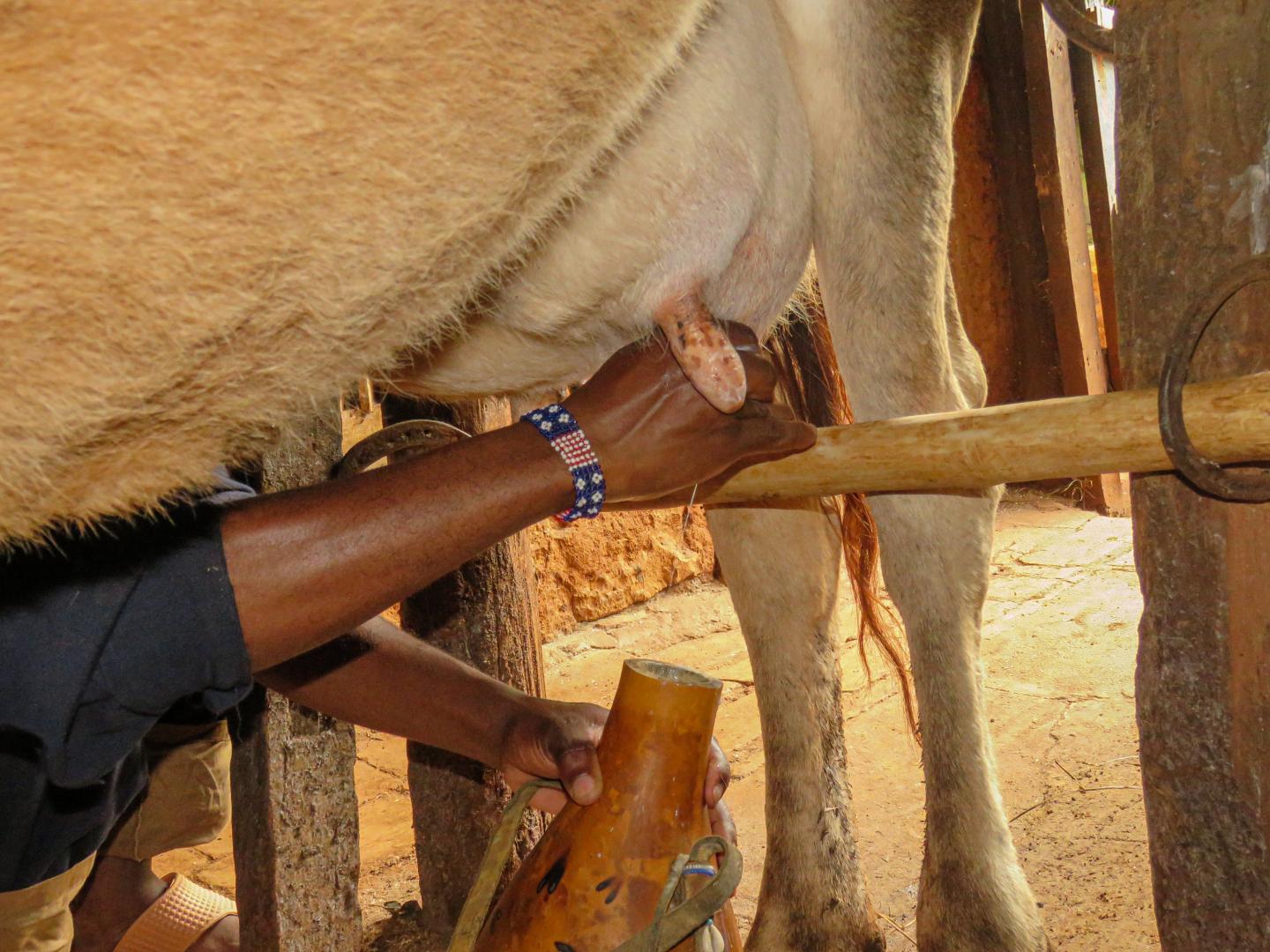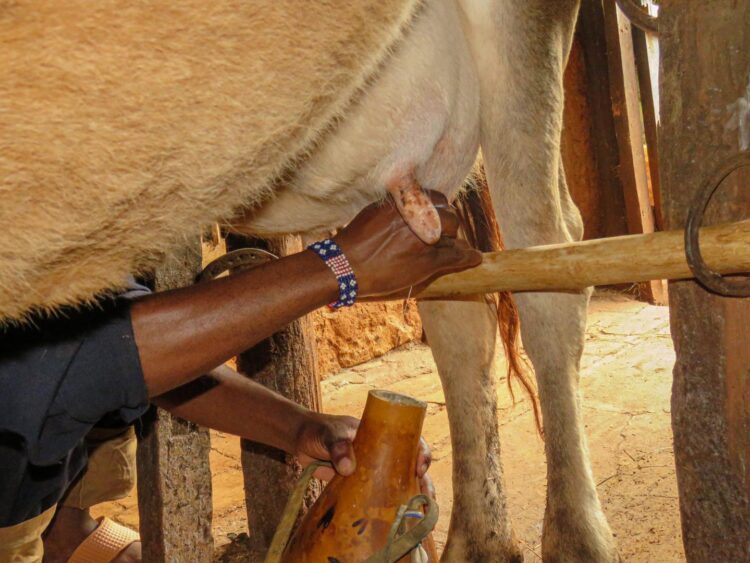
Credit: Oliver Rudd
When you pour a bowl of cereal, you probably aren’t considering how humans came to enjoy milk in the first place. But animal milk was essential to east African herders at least 5,000 years ago, according to a new study that uncovers the consumption habits in what is now Kenya and Tanzania — and sheds a light on human evolution.
Katherine M. Grillo, assistant professor of anthropology at the University of Florida and a 2012 PhD graduate of Washington University in St. Louis, teamed up with researchers, including Washington University’s Fiona Marshall, the James W. and Jean L. Davis Professor in Arts & Sciences, for the study published this week in the Proceedings of the National Academy of Sciences. Julie Dunne at the University of Bristol in the United Kingdom is co-first author on the paper with Grillo.
After excavating pottery at sites throughout east Africa, team members analyzed organic lipid residues left in the pottery and were able to see evidence of milk, meat and plant processing.
“(This is) the first direct evidence we’ve ever had for milk or plant processing by ancient pastoralist societies in eastern Africa,” Grillo said.
“The milk traces in ancient pots confirms the story that bones have been telling us about how pastoralists lived in eastern Africa 5,000 to 3,000 years ago — an area still famous for cattle herding and the historic way of life of people such as Maasai and Turkana,” Marshall said.
Marshall continued: “Most people don’t think about the fact that we are not really designed to drink milk as adults — most mammals can’t. People who had mutations that allowed them to digest fresh milk survived better, we think, among herders in Africa. But there’s a lot we don’t know about how, where and when this happened.
“It’s important because we still rely on our genetics to be able to drink fresh cow’s milk once we are adults.”
This research shows, for the first time, that herders who specialized in cattle — as opposed to hunting the abundant wildlife of the Mara Serengeti — were certainly drinking milk.
“One of the reasons pastoralism has been so successful around the world is that humans have developed lactase persistence — the ability to digest milk due to the presence of specific alleles,” Grillo said.
Notably, in east Africa there are distinctive genetic bases for lactase persistence that are different from other parts of the world. Geneticists believed that this ability to digest milk in northeast Africa evolved around 5,000 years ago, but archaeologists knew little about the archaeological contexts in which that evolution took place.
The development of pastoralism in Africa is unique as well, where herding societies developed in areas that often can’t support agriculture.
###
Read more about the study from the University of Florida and the University of Bristol.
Media Contact
Talia Ogliore
[email protected]
Original Source
https:/
Related Journal Article
http://dx.





